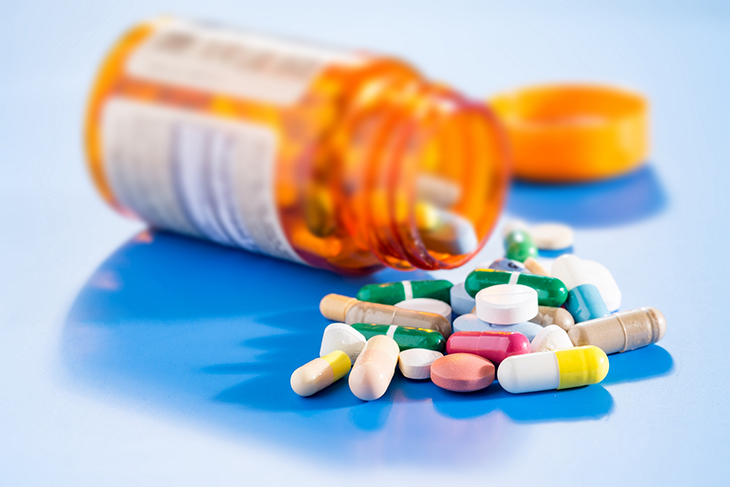
According to a new study, supplements such as turmeric, fish oil and cinnamon, which are often believed to have heart benefits, actually have no impact on ‘bad’ cholesterol and in fact, are a major risk factor when it comes to heart attacks and strokes.
Many of these dietary supplements are often touted to be very good for the heart, but the new research that was presented at the American Heart Association (AHA) Scientific Sessions 2022 claims that they may not actually be worth taking.
The study results, which were published in the Journal of the American College of Cardiology (JACC), discovered that six dietary supplements commonly sued for heart health didn’t actually help lower bad cholesterol, or low-density lipoprotein (LDL) cholesterol, which is known to increase plaque buildup the blood vessels that tends to increase the risk of blood clots, heart attacks, and stroke.
In the study, the scientists also wanted to see if any of the following supplements could actually reduce the so-called “bad” cholesterol. These include fish oil, turmeric, garlic, red yeast rice, cinnamon, and plant sterols. In order to find out, the researchers assigned 190 adults without any history of heart disease at random to either take one of the six supplements, a placebo, or a low-dose statin, which happens to be a cholesterol-lowering drug, every single day for at least four weeks.
At the end of the study, they found that none of these supplements actually reduced LDL cholesterol levels significantly more than that of the placebo. However, the statin pill, which is a 5-milligram dose of rosuvastatin (Crestor), managed to reduce LDL cholesterol levels by at least 35 percent more than the placebo.
According to lead study author and co-director of the Center for Blood Pressure Disorders at the Cleveland Clinic in Ohio, Luke Laffin, MD, explained, “Americans spend an estimated $50 billion on dietary supplements annually, and many are marketed for ‘heart protection’ or ‘cholesterol management,’ yet there is minimal to no research demonstrating these benefits.”
He added, “Some people also believe supplements are as effective or more effective than cholesterol-lowering statin medications.”
He also said that around half of Laffin’s patients took one of the six supplements that were tested in the study, which was one of the main reasons why the researchers decided to test how well they actually worked. Moreover, one of the main concern was that patients were choosing to take one of these supplements instead of using other proven treatments.
Dr. Laffin went on to say, “Worse still is patients stop taking medications like statins and take supplements in their place.”
As for the study, at least half of the patients in the statin group saw their LDL cholesterol levels drops by over 40 percent.
In addition, the side effects of the supplements were also similar across all the groups in the study. But, the study team also explained in the JACC journal that there is an estimated 23,000 emergency room visits every year in the United States because of adverse events linked to these dietary supplements.
Another limitation to the study was that aside from its small testing size, the study also only lasted for four weeks. The researchers explain that the safety or effectiveness of the statin drug or supplements might have been different had it been a longer and bigger sized trial.
As for the independent medical advisory panel, the U.S. Preventive Services Task Force, they recommended back in August for people between the ages of 40 to 75 that have a high risk for heart disease to take statin therapy in order to prevent the possibly of first heart attack or stroke. Some factors for people at risk to take into consideration are those with high cholesterol, diabetes, smoking, and high blood pressure.
Moreover, patients that take statins normally consume higher doses than what the researchers also tested in the new study. As per the Guidelines from the AHA and ACC, they recommend that people at the highest risk for heart disease should go on high-intensity statin therapy, which aims to cut LDL cholesterol levels by at least half. Under these guidelines, high risk patients are made to take 20 to 40 milligrams of rosuvastatin pills every day.
Notably, statins aren’t the only kind of intervention that these guidelines suggest. In fact, the AHA also recommends that people consume the proper amounts of nutrients they need by eating a proper diet rather than use supplements. They also encourage patients to get a lot of exercise, while also following such heart-healthy diets as the Mediterranean-style diet, where people are made to consume higher diets of fish, vegetables, fruits, legumes, olive oil, whole grains, while limiting processed and red meat.
According to the chair of the AHA’s Council on Scientific Sessions Programming and chief cardiology at Duke University School of Medicine in Durham, North Caroline, Manesh Patel, MD, explains that supplements may also just add confusion to patients when it comes to heart health.
He said, “The main harm is that they would cause confusion and less use of things that work to improve heart health,” Dr. Patel says. “They also increase the costs and complexity for people to ensure good heart health through both behaviors and medical therapy.”



